Inside Siberia’s isolated community of forgotten women
- Published
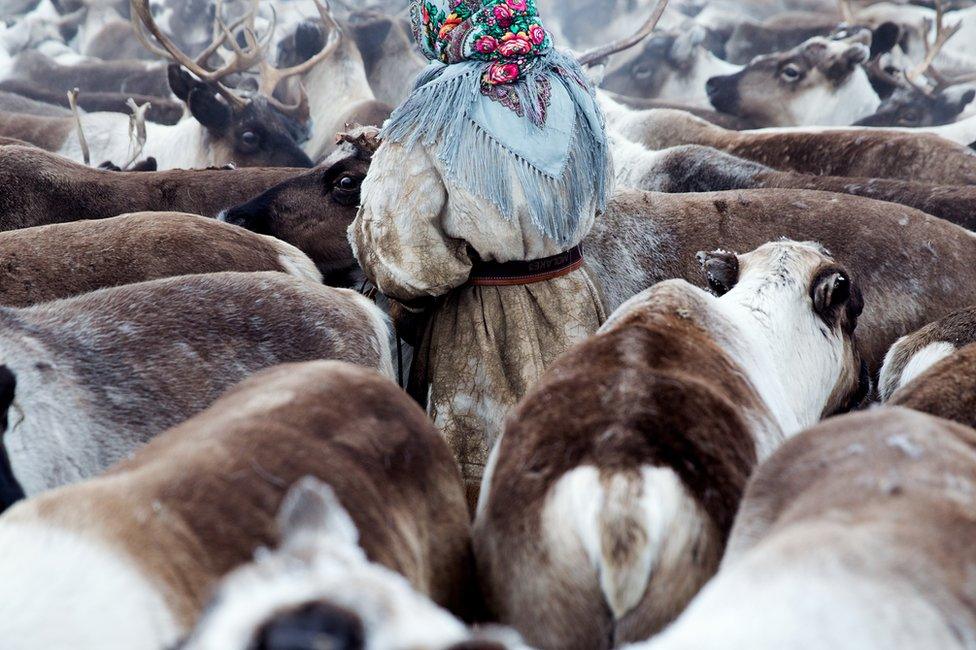

In the remote village of Yar-Sale, in Northern Siberia, lives a group of elderly women. Once part of a nomadic community of reindeer herders, in their old age they spend most of their days in seclusion, isolated from the world they loved.
While the men are encouraged to remain within the migrating community and maintain their social roles, the women are often ostracised and left to face the struggles of old age alone.
Photographer Oded Wagenstein took the long journey to meet these 'forgotten' women.

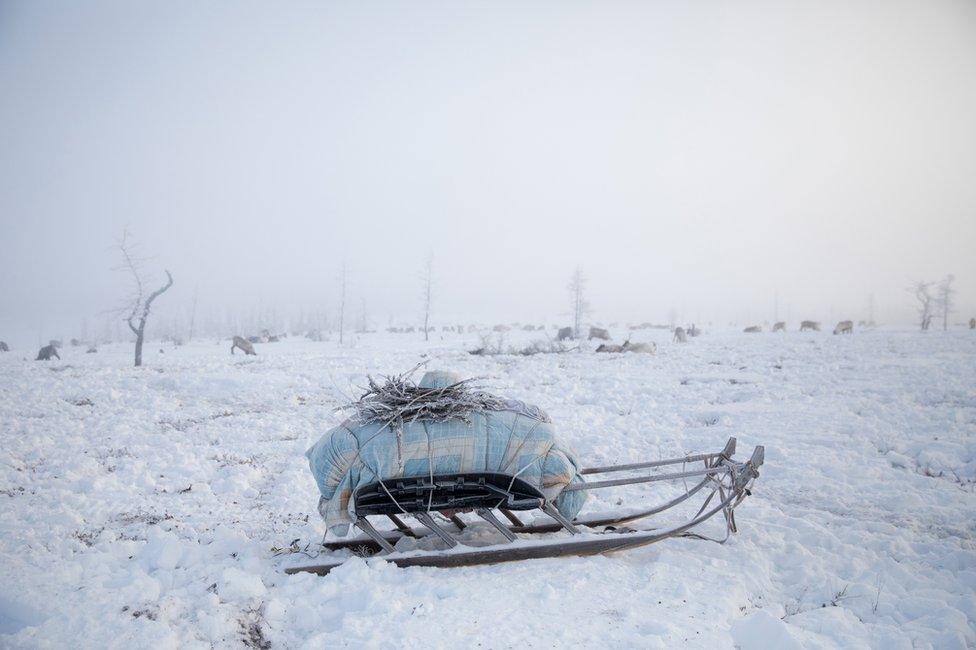

"It took a flight, a sixty-hour train ride from Moscow, and a seven-hour bone-breaking drive across a frozen river to meet them," says Oded.
"I was surprised by the warmth with which they welcomed me to their homes and for days - over many cups of tea - we sat together as they shared their stories, lullabies, and longings with me: distant memories of white landscapes and reindeer herds, longings for their gone parents and partners, along with great frustration over the feeling of being 'purposeless'."


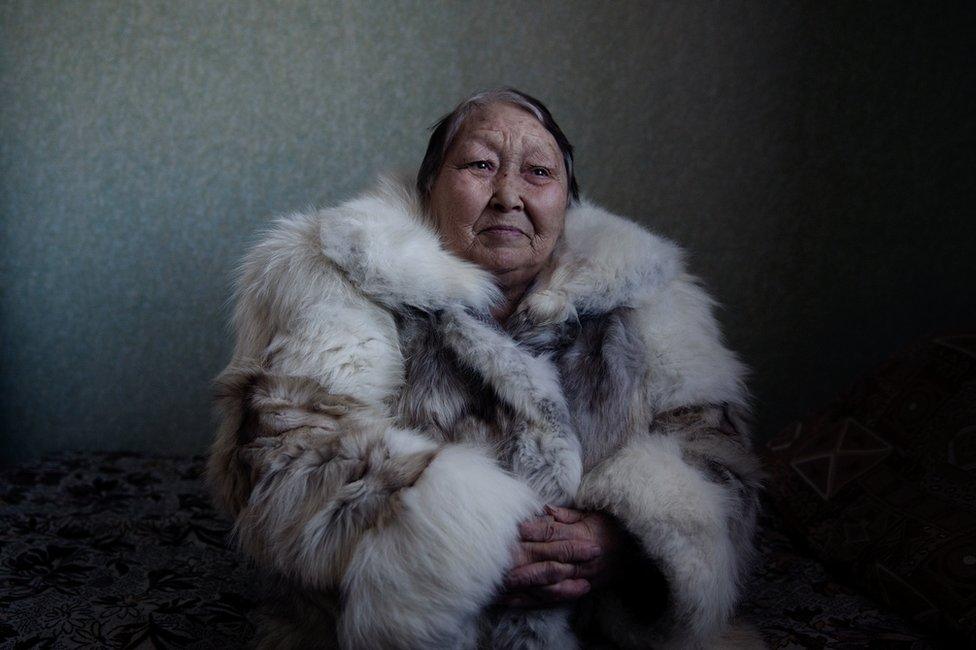

Angelina Serotetto, born 1942
Part of a family of shaman women, Angelina's mother taught her to read the future using sacred objects from nature.
"Yes! I miss those days in the past but I try to remain optimistic. I view everything with a loving eye. I think you learn it as you get older."


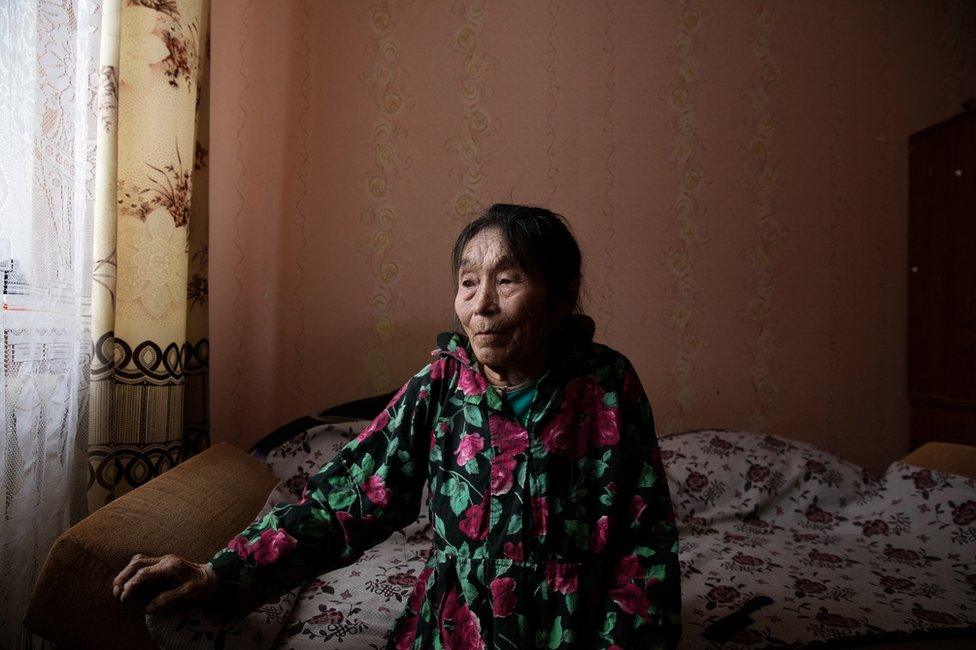

Autipana Audi, born 1941
During her lifetime, Autipana experienced many sad losses.
She lost her husband, son and daughter to diseases, and a few years ago her entire reindeer herd perished due to starvation during a cold spell.
Almost unable to walk, she spends her days mostly limited to her bed, aware that she will never be able to wander again.
"I miss summers, when we used to fish. I miss my family and the reindeer, but the thing I miss the most is walking. Walking in the snow."


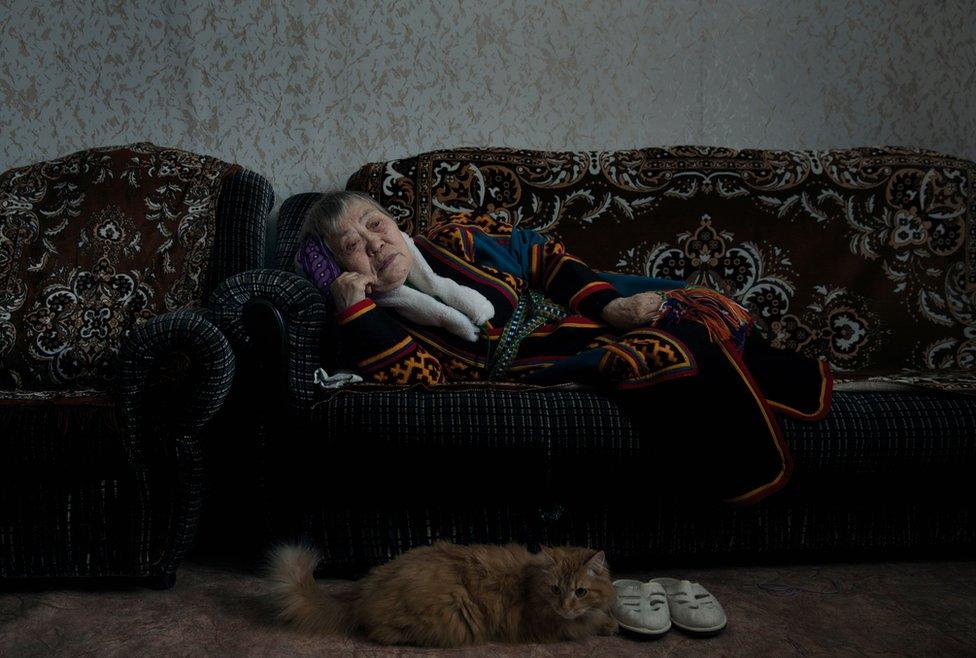

Zinaida Evay, born 1946
Married for many years, Zinaida recalls how her husband had "a wonderful bond, full of love and laughter, right to his last day."
Now, she is living in the small apartment alone with their cats.
"But now they are old too," she says. "All that is left are the lullabies I sing to myself."


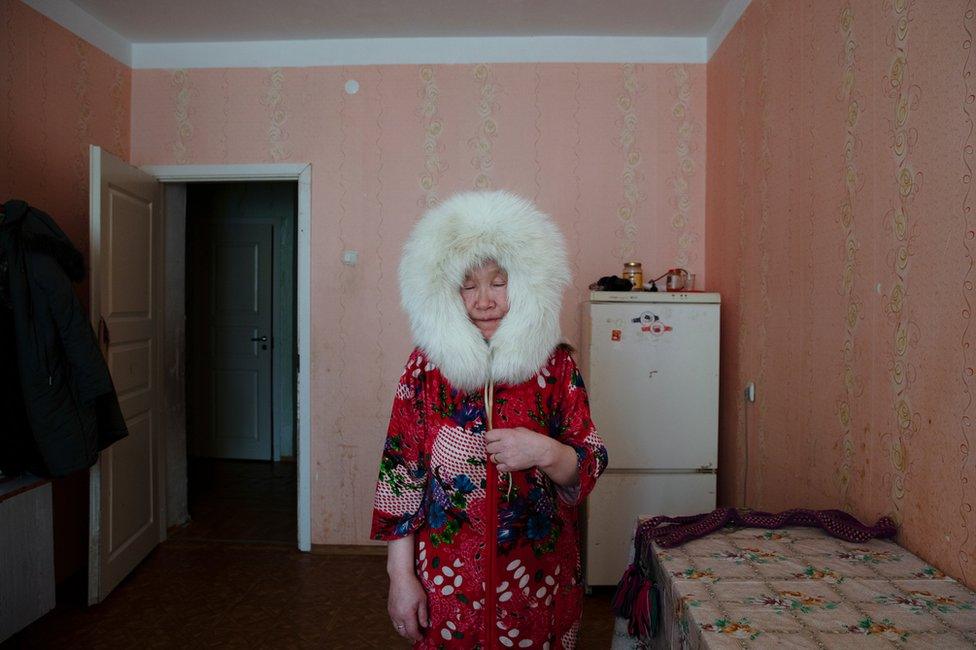

Pudani Audi, born 1948
Like her ancestors, who have wandered the frozen landscape of Northern Siberia for thousands of years, Pudani was born in the tundra and roamed since birth.
During her adulthood, she was a leading herder, taking the precious herds through one of the most extreme environments on Earth.
She still hopes to wander again, but without her community's support, it is unlikely this longing will be realised.
"I miss the feeling of freedom and the outdoors but I feel that my part is over - that I am no longer needed there."


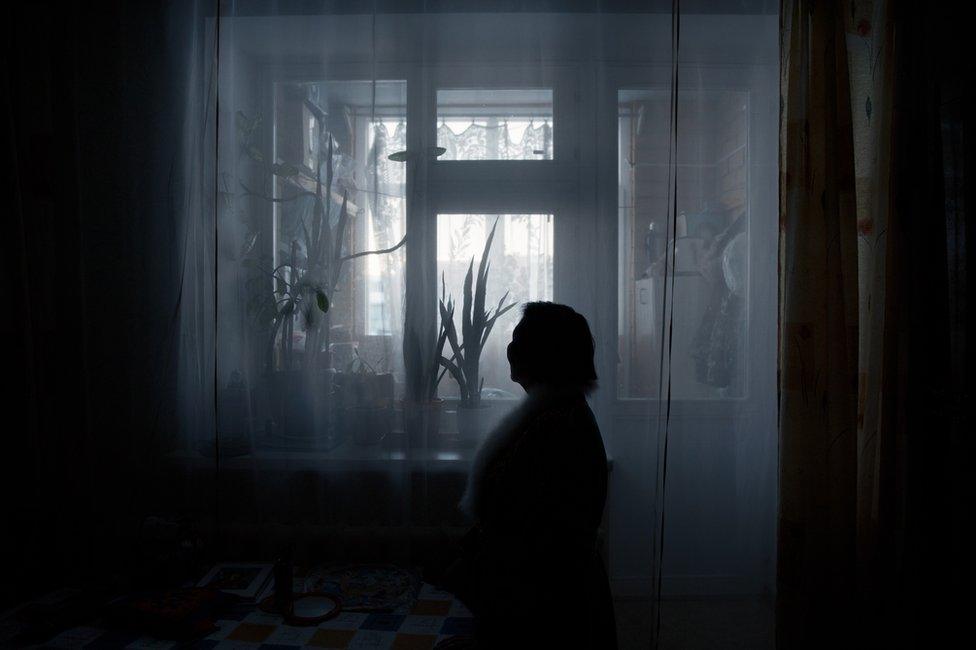

Liliya Yamkina, born 1944
As a child in the tundra, Liliya was the only one in her clan who knew how to read.
She still remembers how important she felt when she read everyone their letters and formal documents.
However, the importance of her reading skills to the clan was also the reason that her father prevented her from going to college to become a teacher.
Now, in her apartment, she writes love songs about the tundra and her dream is to publish them in a magazine.
"I did not fully understand the importance of tradition and family when I was young. I argued so much with my parents. I wanted to escape from my roots. I remember how much I liked it when they told me folk tales around the bonfire…I miss them so much."

Photographs and interviews by Oded Wagenstein., external